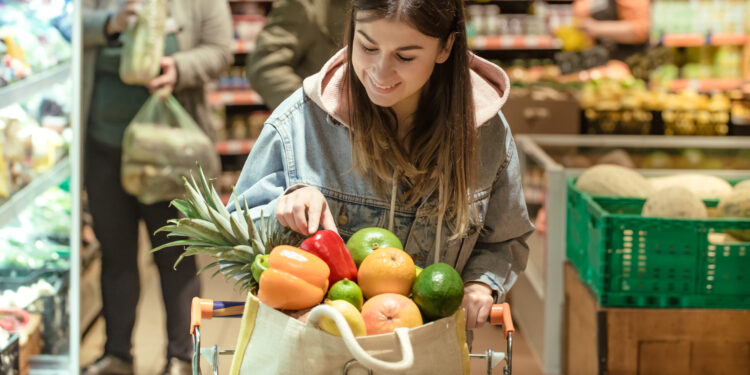Julio García
Aqualia’s VI Sustainable Behaviour Barometer, prepared from the results extracted from its Sustainability Meter, shows an increase in citizens’ commitment to sustainable food consumption and an increase in practices that reduce the amount of wasted food. In addition, the conclusions relate this responsible food consumption with efficient water consumption.
The figures from this sixth wave, which express the results of the period between June 5 and December 5 of this year, reflect a greater adoption of sustainable habits to minimize food waste, which reduces the negative impact on the planet (today, food waste is responsible for 7% of global greenhouse gas emissions) and also saves resources such as water and energy.
The increase in public awareness with a greater use of food and water at home is the main conclusion of the results collected in the last wave of Aqualia’s Sustainability Meter. Thus, 97.73% of people who completed the survey say they usually buy local products, and just over 95% say they save leftover food for the next day.
In addition, 95.38% admit to taking food out of the freezer in advance so as not to defrost it with hot water, a percentage that has risen more than eight points since the last barometer in June 2024, which stood at 87%. Another of the most common habits is to reduce food waste by planning the weekly or monthly menu in advance, which 93.75% of respondents say they do. In addition, 91.67% adjust the amount of water needed to cook food, thus optimising its use.
On the other hand, in this new survey, the percentage of respondents who say they order tap water in restaurants instead of bottled water is reduced by 4 tenths compared to the previous wave, standing at 43.4%.
Some habits still have some room for improvement. Only 35.09% have a basin on hand to collect the water from the shower until it comes out hot and use it later (a figure that falls with respect to the previous survey) and 40% reuse the water from cooking vegetables to water the plants, a figure similar to the previous barometer. Finally, only 46.94% of the people surveyed have ever used digital applications to use leftover food in restaurants at a lower price.
In this wave, Jaén, Córdoba, Tenerife, Guipúzcoa and Toledo are the “most sustainable provinces” because they have the best ratio between participation and correct answers, and therefore, have demonstrated more sustainable behavior. The data measuring greater or lesser sustainability is the index obtained from the relationship between the scores (sustainability points) and the number of participants in each province.
The first Barometer was launched in June 2022 and, since then, Aqualia has periodically published the results of this study to inform and encourage citizens to continue measuring how sustainable their daily habits are. In addition, remember that, once the test is completed, the user obtains both their results and complementary information on what actions they can correct and how to do so through sustainable advice to implement in daily habits.
Aqualia’s Sustainability Meter is the first sustainable behavior and habit meter for citizens. The tool, a simple 5-question test available on the website sosteniblometro.com, has collected the responses of more than 14,400 participants since its launch in January 2022.







